The Third Force
On the 18th of December 2015, a group of
analysts based in the United Kingdom (UK) reported that JP Morgan Chase &
Co. (or JP) and Goldman Sachs Group Inc. (or Goldman), two of America’s
foremost financial institutions by net asset worth, came in first and a close
second respectively in a global rating system that measured the performance of
financial institutions based on fees collected.
According to these analysts, both JP and
Goldman had dominated the global securities scene by underwriting massive amounts
of debt instruments for various government owned entities. My team discovered
that JP alone had underwritten more than USD4 billion in green and
sustainability themed bonds and arranged capital worth approximately USD2
billion for renewable energy in the United States (US) alone.
However, it struck us as weird that
these analysts blacked out information that pertained to certain corporations
JP had done business with. One might have thought that to be the least critical
of information the bank would have wanted concealed. Whatever little
information we stumbled upon told us something was wrong, that the analysts
were hiding something from the general public.
Upon further inspection, we discovered
that most corporations doing business with JP were linked directly to the US
government, or more accurately, the Obama administration. Some of this
information was classified and deemed a matter of national security. However,
documents we sighted revealed that the analysts did not want the world to know
how JP was the vehicle through which the Obama administration raised tons and
tons of capital through massive debt instruments guaranteed at “anomalous
rates.”
Yet, the media cast its spotlight on
Goldman since 2013 for underwriting bonds worth billions of dollars for
1Malaysia Development Berhad (1MDB), a sovereign wealth fund wholly owned by
the government of Malaysia. They accused banking insiders of conspiring with
the Malaysian government to guarantee bonds at rates they described were “astonishingly
anomalous.”
A 9th of May 2013 posting by Bloomberg
read as follows:
“In the first quarter, New York-based
Goldman reported a 36 percent increase in investment banking fees, including a
69 percent rise in fixed-income underwriting revenue. Fees across the industry
gained 17 percent, according to a report by Alison Williams, a Bloomberg
Industries investment banking analyst.
“1MDB and Goldman are coming under
increased scrutiny after the fund sold $3 billion of 4.4 percent, 10-year notes
privately on March 19. The sale was hurried because it required a government
letter of support, said the person familiar with the process.”
That was on JP.
A quick check by my team revealed that
Bloomberg had almost nothing on JP other than some positive insights and
performance data. Not once did Bloomberg state the “fixed-income underwriting
revenue” or the “percentage increase in investment banking fees” the bank
recorded between the years 2013 and 2016 in a single article. When it came to
Goldman, there were a bunch of reports for the first quarter of 2015 alone that
presented these figures at astonishingly high rates.
Yes, the heat was on 1MDB, and for very
sinister reasons. Today, we’re about to discover that reason and figure out how
it relates to the global media conspiracy to sabotage 1MDB. As we go along and
through an article due by the month end, we will uncover a massively convoluted
and multifaceted conspiracy by a laundry list of prominent people to mislead
the Malaysian government and to siphon funds from 1MDB.
Mahathir and the conspiracy to implicate
Goldman Sachs
In 2012, 1MDB found that it did not have
the funds to complete the purchase of two power plants it needed to realise its
power ambitions. In order to raise capital for the purchase, two of its
subsidiaries – 1MDB Energy Limited and 1MDB Energy (Langat) Limited – issued
bonds worth USD1.75 billion each that were jointly guaranteed by the wealth
fund and an Abu Dhabi owned Investment Company, the International Petroleum
Investment Company, or IPIC.
It’s a little like taking a loan. Only
in this case, the money is not issued by a bank, but raised through the sale of
bonds (or debt instruments) to willing buyers (investors) upon the promise of
an interest on the face value of the bonds. But the end result is quite the
same – 1MDB effectively took a ‘loan’ and was obligated to pay an interest on
that ‘loan’.
The bank that helped 1MDB sell the bonds
to potential investors was none other than Goldman, which guaranteed that the
bonds would be sold for no less than a minimum price set by the bank itself.
That guarantee amounted to the ‘act’ of underwriting the bonds, in that Goldman
agreed to absorb risks arising from the possibility that it would not be able
to find enough purchasers to buy the bonds.
In the event the bonds could not be
sold, Goldman would either have had to hold those bonds on their books or sell
them below the minimum price and suffer losses. But none of that happened.
Instead, Goldman was able to rake in profit owing to the sale of those bonds
along with some others issued in 2013 at prices higher than the preset minimum.
Now, such dealings are commonplace in
the world of banking and isn’t something anyone needs to shout about. Besides,
the actual fee charged by any bank underwriting a bond is subject to an
agreement exclusive to the bank and the issuer of the bond. Considering that
Goldman had committed to potential contingent risks, it was at liberty to rate
those risks by evaluating 1MDB’s financial health and its ability to service
interests.
I hope you got all of that clear.
Now, when the media (Bloomberg, WSJ and
The Guardian in particular) spoke of Goldman’s revenue, it did so by announcing
that the bank had raked in earnings worth a certain percentage of the face
value of the bonds. That percentage ranged anywhere from 7.7 percent to 9.1
percent, depending on which portal you logged on to and the day you logged on
to that portal.
In other words, the media was simply
messing with your minds. At times, it reported revenue by accounting only
proceeds from the sale of bonds. At other times, it clumped together net
profits generated through the sale of bonds and the fees collected for
underwriting services provided. In neither instance did the media deliver us
the truth.
Yes, the media has been lying to you all
this while.
Both Bloomberg and WSJ implied that
Goldman had dissipated half its proceeds through offshore entities, a portion
of which ended up in Najib’s accounts. Now, I have sighted enough material and
evidence to tell you with conviction that all of what the media reported,
including that which was reported by Sarawak Report, was fabricated in ways
that made it seem as if 1MDB had conspired with unnamed Goldman insiders to
receive kickbacks from the sale of the bonds.
The media was not alone. It was assisted
by analysts, politicians and journalists who possessed enough information to
showcase the bank’s actual earnings to the fourth decimal. That information is
currently being withheld to drag investigations into Goldman and 1MDB until such
a time that Dato’ Seri Najib Tun Razak is forced to step down as Prime Minister
of Malaysia.
Among those who conspired to conceal
similar evidence from authorities are former premier Dr. Mahathir Mohammad,
former deputy premier Tan Sri Muhyiddin Yassin, Sarawak Report Chief Editor
Clare Rewcastle Brown, Malaysia Chronicle Chief Editor Tian Chua and Malaysian
Member of Parliament, Tony Pua.
Now, if you’re thinking that Muhyiddin
is Mahathir’s choice candidate for the post of Prime Minister, you’re dead
wrong. That person is none other than Mahathir himself, who entered into an
agreement my team stumbled upon last Thursday, the 22nd of December 2016.
Accordingly, Mahathir promised George Soros that he would supplant Najib as
Prime Minister in the event the ruling Barisan Nasional loses the 2017 general
election.
And believe me, I speak the truth, the
whole truth and nothing but the truth. One sure way to establish the validity
of this information is for Mahathir to trigger a lawsuit against me if he
thinks I am lying. Both of us could then meet in court and let all hell break
loose until the sun comes up and we see who is left standing.
What other lies did the media and the
analysts spew?
For the past three years or so, JP has
been the bank with the largest-growing-investment-banking fees worldwide. Last
year alone, it chalked up quite a huge profit through the sale of bonds it underwrote
for the US government. These gains were not inclusive of fees it charged the
Obama administration and accounted only for the sale of government bonds.
The remaining of JP’s recorded earnings
since 2013 was derived through equity financing, mergers, acquisitions, and
syndicated loans. Goldman never came close to JP and barely made it to the
second spot last year regardless the rating system employed.
But the media has been saying something
entirely different. In 2013, several news channels declared Goldman to be the
securities firm with “the largest-growing-investment-banking fees.” Not only
was that an outright lie, it amounted to a deliberate attempt by the media to
impress upon the people that Goldman had benefitted immensely from the Malaysian
government through the sale of 1MDB bonds.
Yes, not many are aware that the
conspiracy to put the spotlight on Goldman began in 2013 itself – sometime
after the 13th Malaysian general election. A prominent Malaysian politician was
the first person approached to participate in the conspiracy. If what I am told
is true, that person is none other than Tan Sri Muhyiddin Yassin, the former
deputy Prime Minister of Malaysia.
So who were the analysts, and what did
they have to do with Soros and the world media?
The people who rated JP and Goldman were
from Dealogic, a financial markets platform headquartered in London that offers
integrated content and analytical services to financial institutions worldwide.
Established in 1983, the company was the brainchild of Sir Peter Ogden, a Soros
associate the media keeps referring to as a multimillionaire.
However, not only is Ogden worth
billions, it was he who helped found Computacenter, UK’s fastest growing
independent company worth a staggering three billion British pounds. Ogden’s
links run deep with both Soros and Marcus Ambrose Paul Agius, the non-executive
director of the British Broadcasting Corporation (BBC). It was Marcus who
insisted that Ms. Rewcastle be roped into Soros’ team to lead the Malaysia
chapter of the media campaign against 1MDB.
On the 5th of November 2014, The Carlyle
Group (Carlyle) snapped up more than 50 percent of Dealogic’s shares for a
meagre USD700 million. Overseeing the purchase was Carlyle’s chairman, Daniel
A. D’Aniello, who founded the company together with two of his associates on
Soros’ advice.
At the time of acquisition, D’Aniello
sought advice from JP Morgan, the same bank that conspired with former British
premier Tony Blair to leak confidential information that pertained to 1MDB and
its dealings with the Mideast. In a quid pro quo arrangement not known to many,
D’Aniello agreed to absorb one of JP’s employees into Carlyle as the company’s
deputy president.
That employee was Michael Cavanagh, who
served under JP’s Chief Executive Officer Jamie Dimon for more than two
decades. Some months after the acquisition, it was revealed that Cavanagh was
promised USD26.1 million in stock and USD 5 million in cash bonus despite being
a fresh face in the company. A year later, Cavanagh raised many eyebrows when
he quit Carlyle after receiving all that wealth.
Unbeknown to many, the person who
arranged Cavanagh’s multimillion dollar walk through Carlyle was none other
than Tony Blair, a staunch Dimon associate. In 2008, Dimon appointed Blair as
JP’s advisor, a role that earned the former British premier two million pounds
a year without him having to enter office on a regular basis. It was through
Blair’s association with Dimon and Cavanagh that the former British premier
first got to know of 1MDB’s dealings with the Mideast.
Cavanagh’s brief stint with Carlyle and
the company’s acquisition of Dealogic left an information trail that told
analysts everything they needed to know about 1MDB. Cavanagh was there to
assist Dealogic crunch figures in ways that toned down JP’s performance and to
conceal evidence the public did not need to know.
And yes, he was there to make it seem as
if Goldman had struck the jackpot through its dealings with 1MDB. Could that be
the reason why he was paid a sum of money Carlyle veterans could only dream of
earning?






























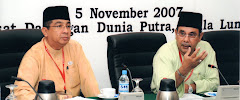


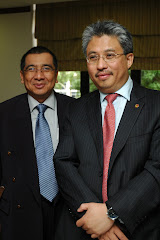
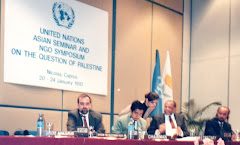
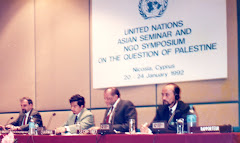


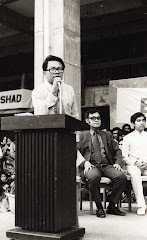


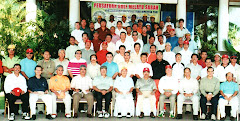





No comments:
Post a Comment